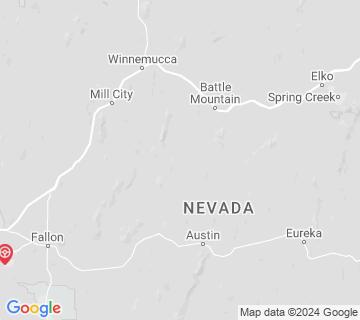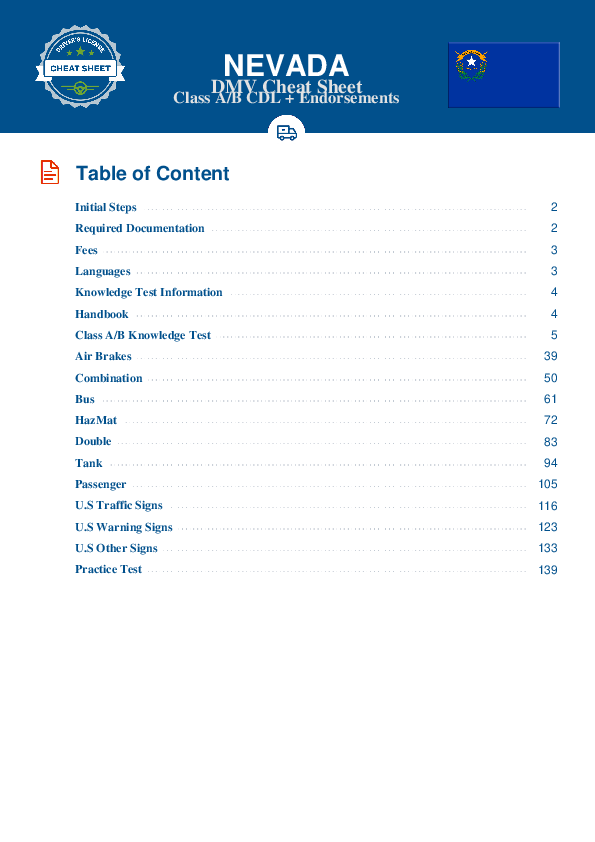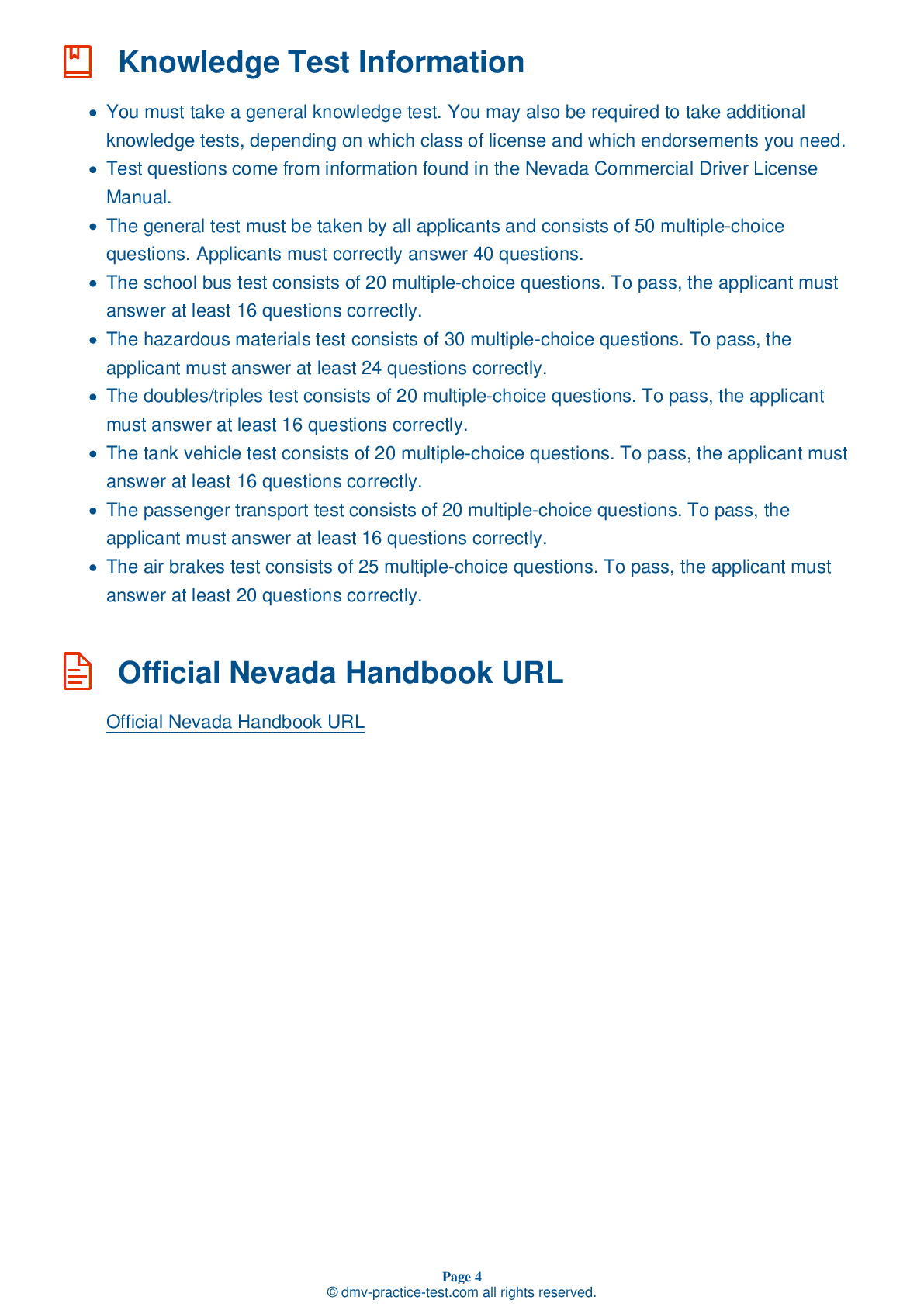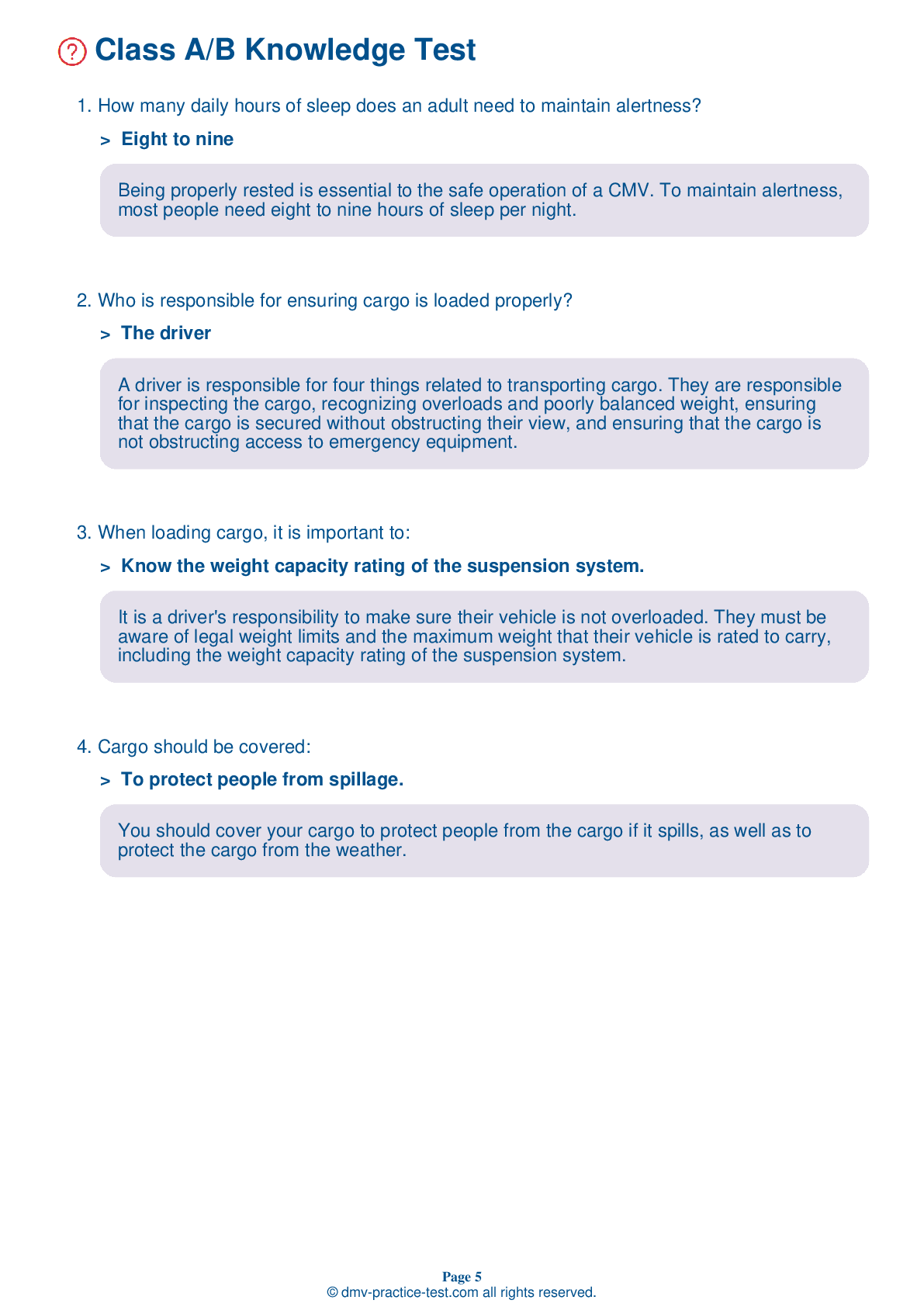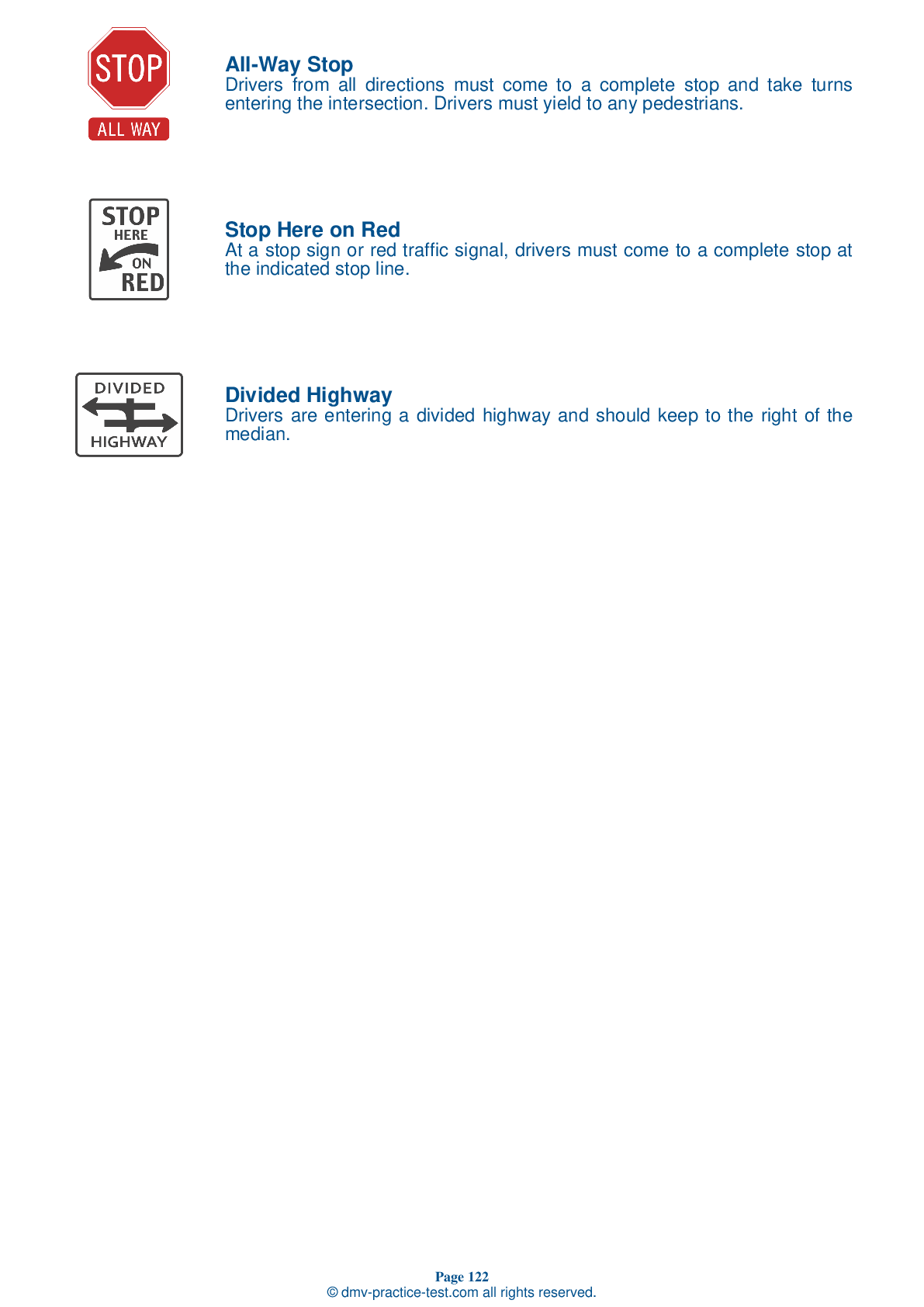Double #1
Double Triple Test | Nevada 2026 #1 Page 2 of 3
Train for FREE with our Nevada CDL double triple practice test online. The official exam test consists of several obligatory parts, with all of them checking your knowledge of different blocks of road rules. If you need to obtain a NV CDL double triple license in 2026, practice as much as possible. Free sample tests published on our website will help you check and improve your knowledge and boost your grades. Please bear in mind that DMV requirements may vary from state to state.
20
16
20
8 . A danger of swerving to avoid a hazard while driving a large truck is that:
While swerving can sometimes be the safest way to handle a hazard on the roadway, doing so is not without risk. Top-heavy vehicles and tractors with multiple trailers may flip over in a swerve.
9 . Service brakes should:
Before driving, you should always verify that your service brakes are in good working order. Testing the brakes before a trip allows you to locate any problems before you need to brake while on the road.
10 . What can happen if a parking brake is used in very wet weather when temperatures are below freezing?
The brakes may explode.
If you use the parking brakes when the weather is very wet and the temperature is below freezing, the brakes may become frozen, preventing the vehicle from moving.
11 . Rollovers happen when:
You plan an escape route.
Rollovers happen as a result of drivers taking turns too fast.
12 . When an engine is running, an acceptable oil pressure would be:
Operating oil pressure should be between 35 and 75 psi. Do not operate a vehicle if it has oil pressure that is low, dropping, or fluctuating.
13 . When approaching a vehicle for a pre-trip inspection, a driver should look under the vehicle:
To see if the vehicle is on a decline.
When approaching your vehicle to conduct an inspection, you should look underneath it to make sure there are no fresh oil, coolant, grease, or fuel leaks on the ground. Leaks can indicate unsafe defects on a vehicle.
14 . After finishing a pre-trip inspection, you should:
Leave the rear shut-off valves open.
Before a trip, you should ensure that air reaches all air brakes on all trailers by opening up the rear emergency line and service line shut-off valves to listen for escaping air. Close both shut-off valves before beginning to drive.
Search the best driving school in your neighbourhood
2026 Nevada | Frequently Asked Questions
To acquire a CDL Tank endorsement in Nevada, first, you must have a valid Commercial Driver's License (CDL). Then, you need to pass the Tank Vehicle written test at your local DMV. This test covers the special driving rules and techniques for tank vehicles. Once you pass the test, the Tank endorsement will be added to your CDL.
To obtain a CDL Tank license, you must first hold a valid Commercial Driver's License (CDL). You should then study the Tank Vehicles section of your state's CDL handbook thoroughly. Once prepared, you'll need to pass a written tank vehicle endorsement test at your local DMV. This endorsement is required for driving vehicles transporting liquid or liquefied gas cargo.
Specific training or experience is not mandatory to obtain a CDL Tank endorsement in Nevada. However, it's crucial to know the unique handling characteristics of tank vehicles. Studying the CDL manual, particularly the section about tank vehicles, will help you pass the written test at the DMV and safely operate such vehicles.
Yes, to obtain a CDL Tank endorsement in Nevada, you must pass an additional written test specific to tank vehicles. This test covers unique rules and driving techniques for tank vehicles. It is taken at your local DMV and is in addition to the general CDL written test. You do not need to take an additional skills test.
The written test for the CDL Tank endorsement in Nevada covers topics specific to tank vehicles. These include understanding the high center of gravity, how liquid surge affects control, inspecting tank vehicles, and the rules for safe driving. It also includes handling bulkheads, baffled and unbaffled tanks, and emergencies specific to tank vehicles.
During the CDL Tank endorsement assessment in Nevada, the following skills and maneuvers are assessed: inspection of the vehicle, controlling the vehicle in various driving conditions, backing up and parking the vehicle, handling emergency situations, and demonstrating knowledge of tank vehicle safety regulations. It is important to study and practice these skills to successfully pass the assessment.
Yes, there are constraints for drivers with a CDL Tank endorsement in Nevada. For instance, they must comply with the Hazardous Materials Regulations (HMR) if they transport hazardous substances. Additionally, they must always maintain their CDL and endorsements, and adhere to all federal and state driving laws. Violations can result in temporary or permanent loss of their CDL privileges.
No, in Nevada, you cannot transport liquid or gas materials without a valid CDL Tank endorsement. This endorsement is required for operating a tank vehicle, which is defined as any commercial motor vehicle designed to transport any liquid or gaseous materials within a tank. Violating this can result in fines and loss of driving privileges.
The CDL Tank endorsement can be added to your existing Commercial Driver's License (CDL) in Nevada. You don't need a fresh application. However, you must pass a knowledge test specific to tank vehicle operation and pay the required fees. Once you pass the test, the Tank endorsement will be added to your CDL.
Yes, to handle hazardous materials with a CDL Tank endorsement in Nevada, you must also have a Hazardous Materials (HazMat) endorsement. This requires passing an additional knowledge test, a TSA background check, and fingerprinting. Without the HazMat endorsement, you may transport non-hazardous materials in a tank vehicle.
